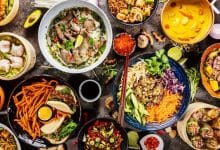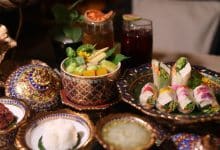Top 7 healthy eating tips in Thailand
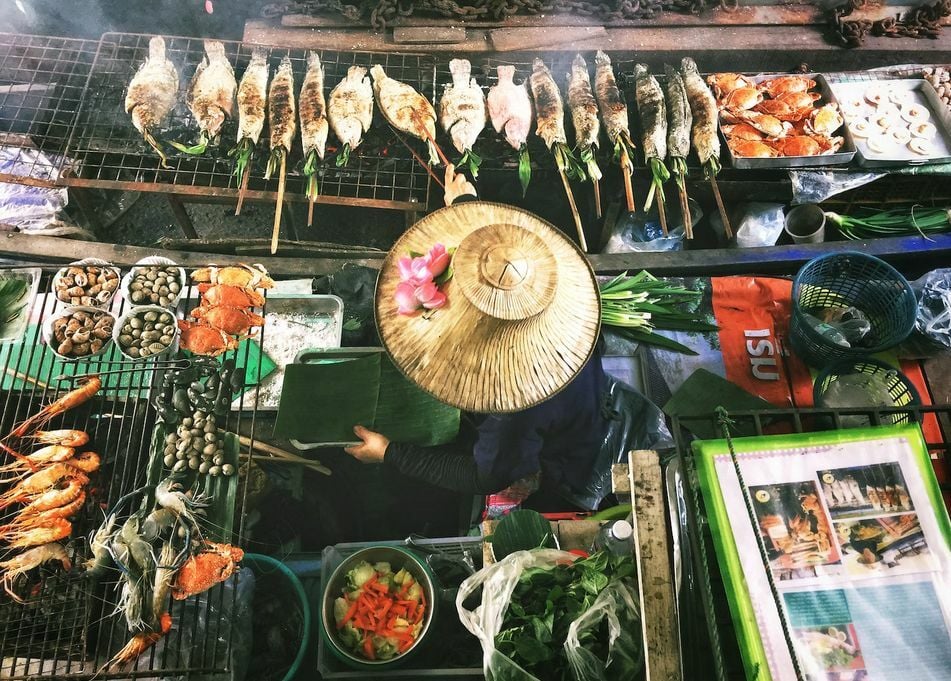
Healthy eating tips in Thailand are an essential aspect of maintaining a good quality of life. It involves choosing a balanced diet that provides the body with all the necessary nutrients it needs to function correctly. Eating a variety of foods, in the right proportions, and consuming the right amount of food and drink to achieve and maintain a healthy body weight is fundamental.
When travelling or staying in a different country, like Thailand, eating healthily can be both an exciting and a challenging experience due to the introduction to new cuisines, ingredients, and eating habits.
Thailand is renowned for its vibrant culture, beautiful landscapes, and, most famously, its delicious cuisine. Thai food is a blend of sweet, sour, spicy, and salty flavours that tantalize taste buds and often come with a healthy array of vegetables, lean proteins, and fresh herbs.
However, staying healthy while indulging in the local food scene in Thailand can be tricky due to the temptation of sugary desserts, deep-fried snacks, and creamy curries. It is important to know how to navigate through these options to make the most out of the Thai food experience without compromising on health.

7 Eating tips in Thailand
Opt for Street Food Wisely and adopt local eating habits
Thai street food is notorious for being both appetizing and accessible, offering a true taste of local fare. As delightful as it is, healthy choices can sometimes be overshadowed by more decadent options. Seek out vendors serving grilled skewers of chicken, pork, or seafood, which provide lean sources of protein.
Also, look for fresh summer rolls, which are packed with raw vegetables and occasionally shrimp or tofu. These are often served with a lighter dipping sauce as opposed to heavier, fried items. By choosing wisely and opting for freshly prepared items with an abundance of natural ingredients, street food can be a nutritious part of your Thai culinary adventure.
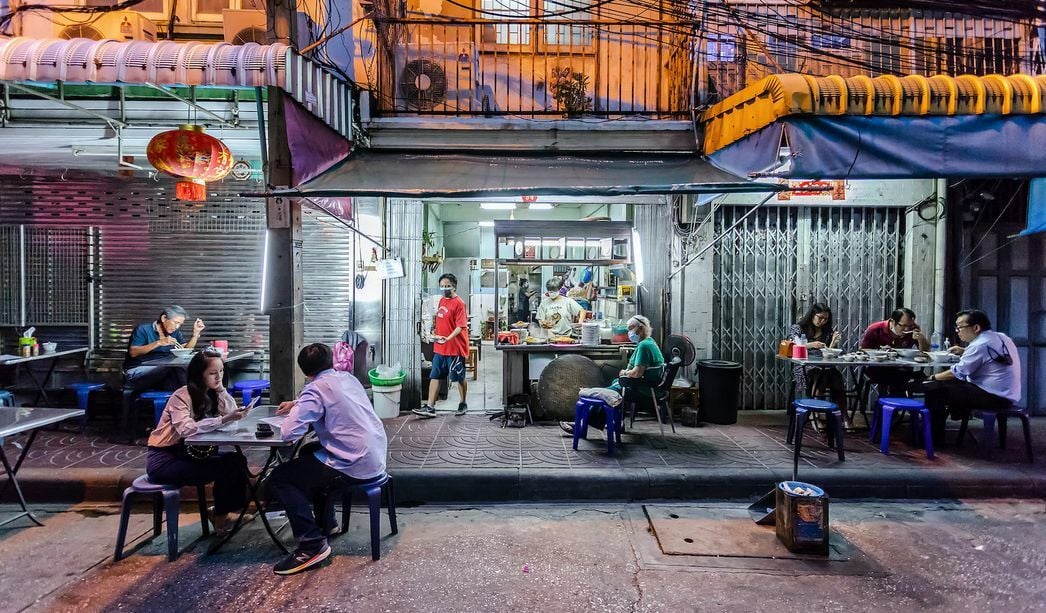
Moreover, another eating tip in Thailand is eating the same way as Thais allows you to try a broader range of foods and flavours. Be intentional with your food choices, selecting nutrient-dense options that will sustain you until your next small meal. By mimicking local eating habits, you can immerse yourself more deeply in Thailand’s eating culture while maintaining control over your appetite and health.
Choose Fresh Fruit
Thailand’s array of tropical fruits is not only vast and brimming with health benefits. Instead of reaching for sweets or processed snacks, indulge in the natural sweetness of fruits like rambutan, lychee, and guava. These fruits provide important vitamins, antioxidants, and fibre that aid in digestion and overall health.
Mangoes, with their rich supply of vitamin A, and papayas, rich in digestive enzymes, are also excellent choices. Visiting local markets can be an adventure in itself, offering the opportunity to explore and taste a variety of fresh fruits. By making fruits a go-to snack, you’ll not only enjoy the flavours of the region but also support your well-being.
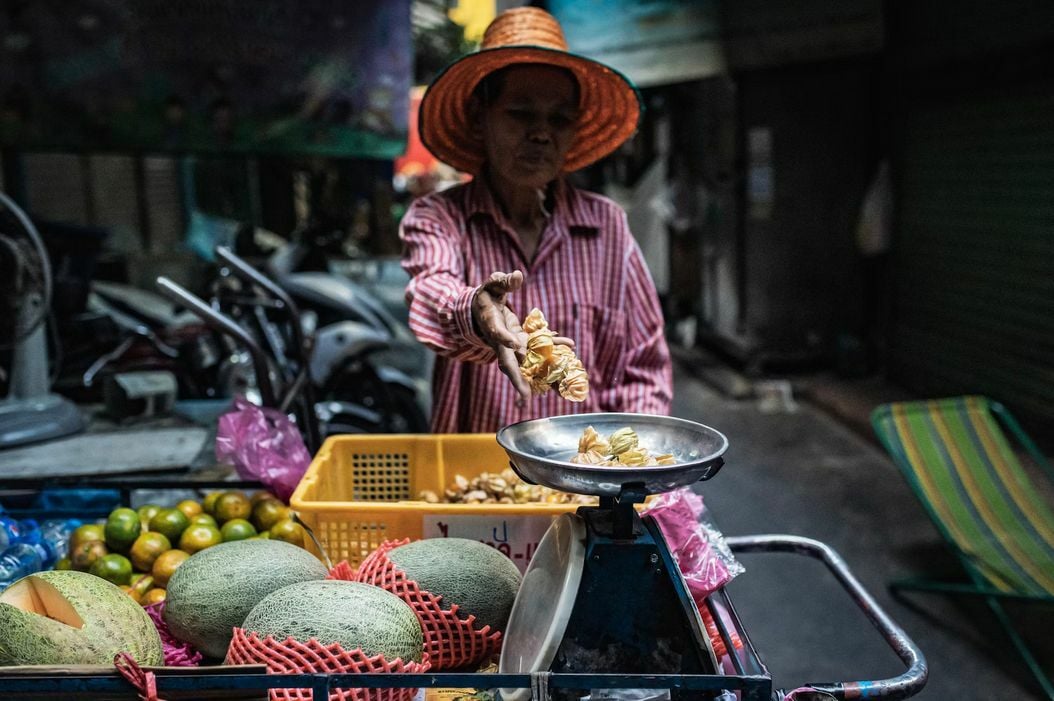
Go for Balanced Meals
To maintain a healthy diet while enjoying Thai cuisine, it’s important to seek balance in your plates. Aim for meals that include a variety of food groups – ample vegetables, lean proteins such as poultry, fish, or tofu, and a moderate amount of whole grains like brown rice or whole wheat noodles.
Thai stir-fries can be a nutritious choice, especially if you request extra vegetables and less oil in preparation. Many restaurants are accommodating and will adjust dishes to suit dietary preferences. When it comes to carbohydrates, opting for whole-grain options can increase your intake of beneficial fibre. Balanced meals will not only provide the energy needed for exploring but also ensure you get the nutrients your body requires.
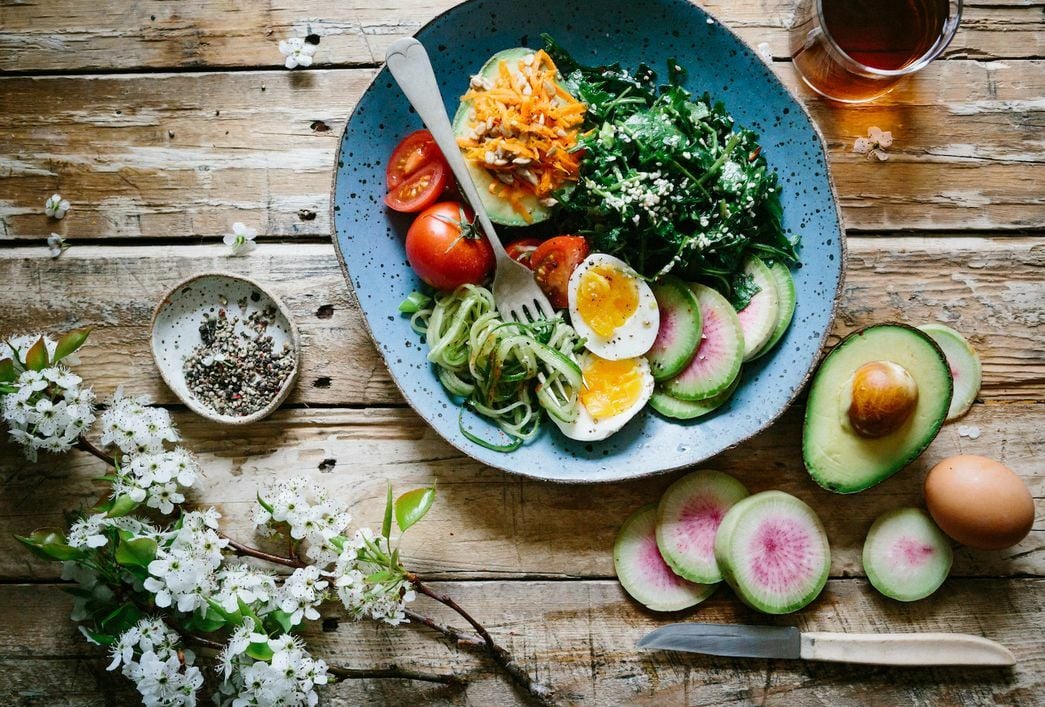
Mind the Added Sugars
Thai cuisine often includes hidden sugars, particularly in its flavorful sauces and delightful beverages. Be vigilant about your sugar intake by asking for reduced or no added sugar when ordering dishes that are typically sweet. This applies especially to popular drinks like Thai iced tea or coffee, which are customarily served with generous amounts of sweetened condensed milk.
In addition, about the eating tips in Thailand, the sauces accompanying your meals; tamarind sauce, sweet chilli sauce, and even the ubiquitous fish sauce can contain more sugar than you might expect. By controlling the amount of added sugar in your meals and beverages, you’re taking a crucial step in preserving both your dental and overall health, as excessive sugar consumption can lead to a variety of health issues.

Stay Hydrated
Thailand’s tropical climate means that staying hydrated is crucial, as the heat and humidity can quickly lead to dehydration. Always carry a bottle of water with you and drink regularly throughout the day. Many people mistake thirst for hunger, so drinking water can prevent unnecessary snacking.
Hydration is key to maintaining a healthy metabolism, promoting good digestion, and ensuring that your body functions optimally. If plain water doesn’t excite you, try coconut water, which is a natural source of electrolytes and can be found fresh throughout Thailand.
Avoid sugary and alcoholic beverages as your main source of hydration, as they can lead to further dehydration. Remember, if you feel thirsty, you’re already on your way to becoming dehydrated, so sip water consistently.

Control Portion Sizes
Thai meals are typically served in smaller portions than what many Westerners are used to, which can naturally help manage calorie intake. Yet, it is still possible to overeat when faced with an array of delectable choices. Practice portion control by sharing family-style dishes with companions, allowing you to taste a greater variety without consuming too much.
Tune in to your hunger cues, eat slowly, and give your body time to register fullness, which can help prevent overindulgence. If you’re dining alone, consider ordering one dish at a time rather than multiple dishes at once to better control how much you eat. Additionally, using smaller plates can help to keep portions in check and make meals appear more satisfying.
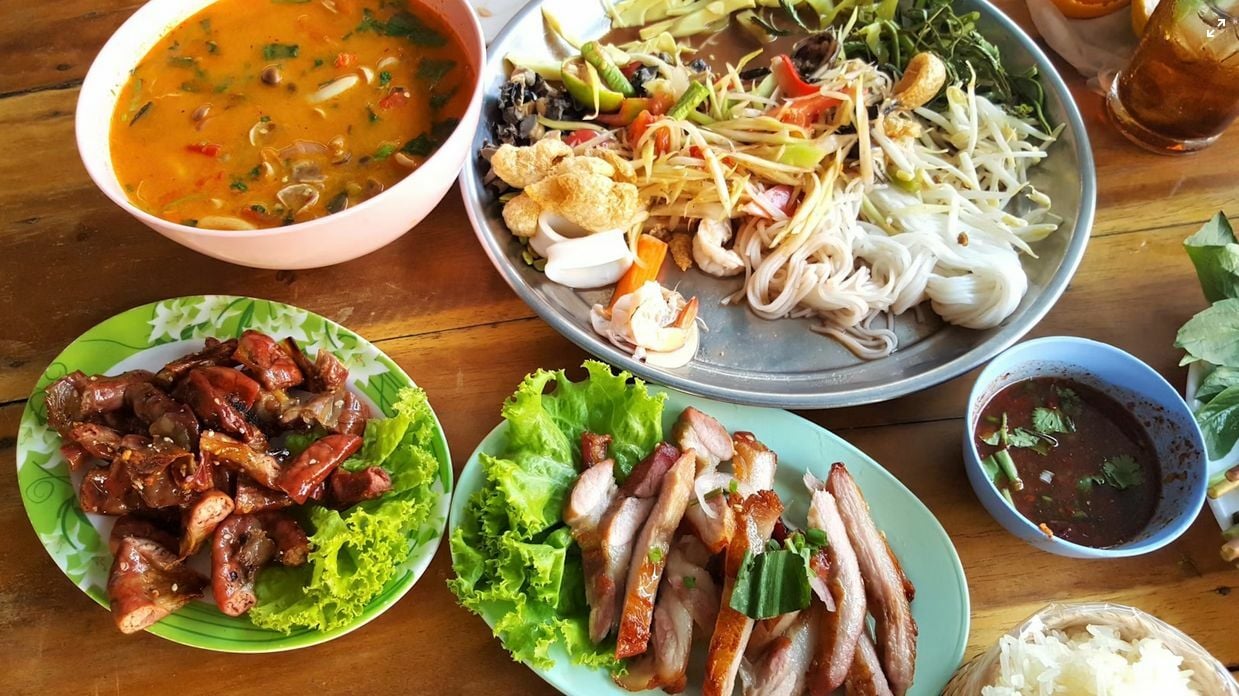
Increase Vegetable Intake
Thailand’s fertile lands mean that there’s no shortage of fresh vegetables, ranging from leafy greens to colourful peppers and nutrient-dense root vegetables. Take advantage of this bounty by including vegetables in every meal. A simple way to do this is to order an additional side of steamed vegetables or a fresh salad to accompany your main dish.
Many traditional Thai dishes, such as soups and curries, already incorporate vegetables, but extra is always better when it comes to nutrient intake. Vegetables provide essential vitamins, minerals, and fibre, which contribute to a feeling of fullness and can help manage weight. As a fun and health-conscious goal, aim to try a new vegetable with each meal to diversify your nutrient intake and discover new favourites.
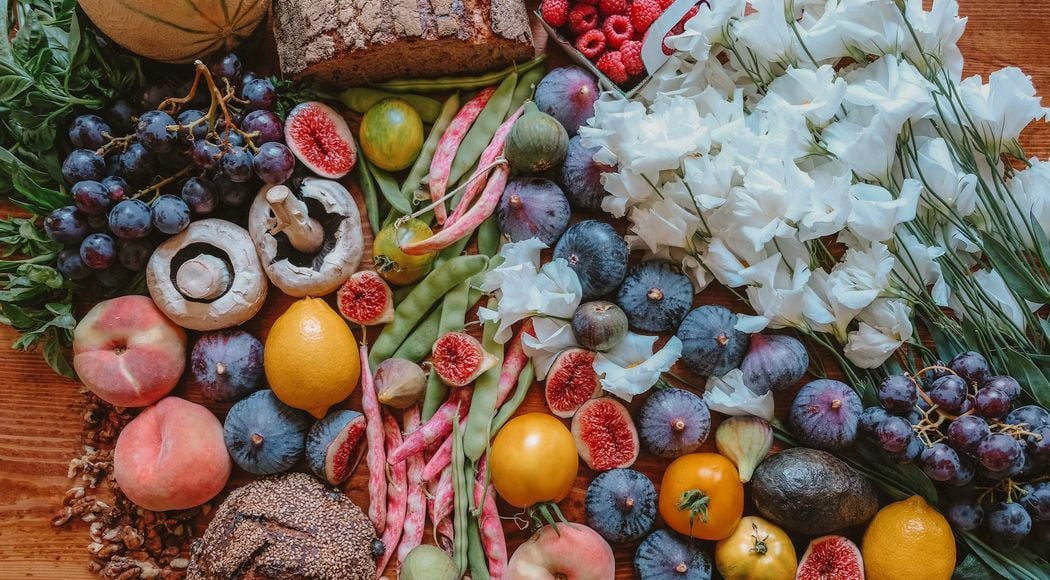
Consuming a variety of foods in the right amounts and drinking plenty of water should make it possible to enjoy a balanced diet in Thailand. The key is to make informed food choices and listen to your body, ensuring that every meal is a step toward a healthy lifestyle, even when you are away from home.
By following these top tips for eating tips in Thailand, you can immerse yourself in the local culture and cuisine without sacrificing your health goals. Enjoy your travels, and savour the flavours of Thailand in the healthiest ways possible.
Latest Thailand News
Follow The Thaiger on Google News:
